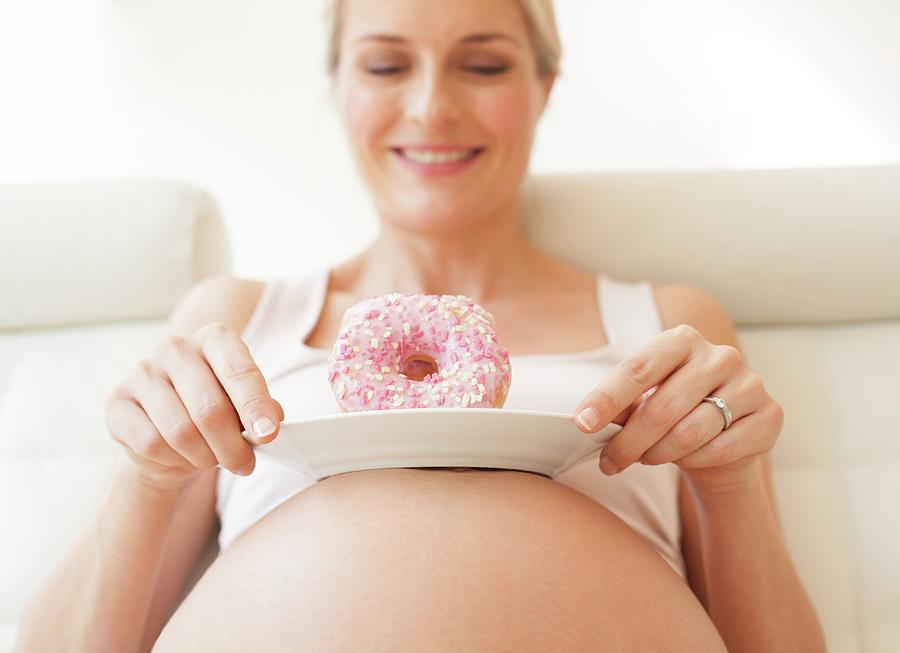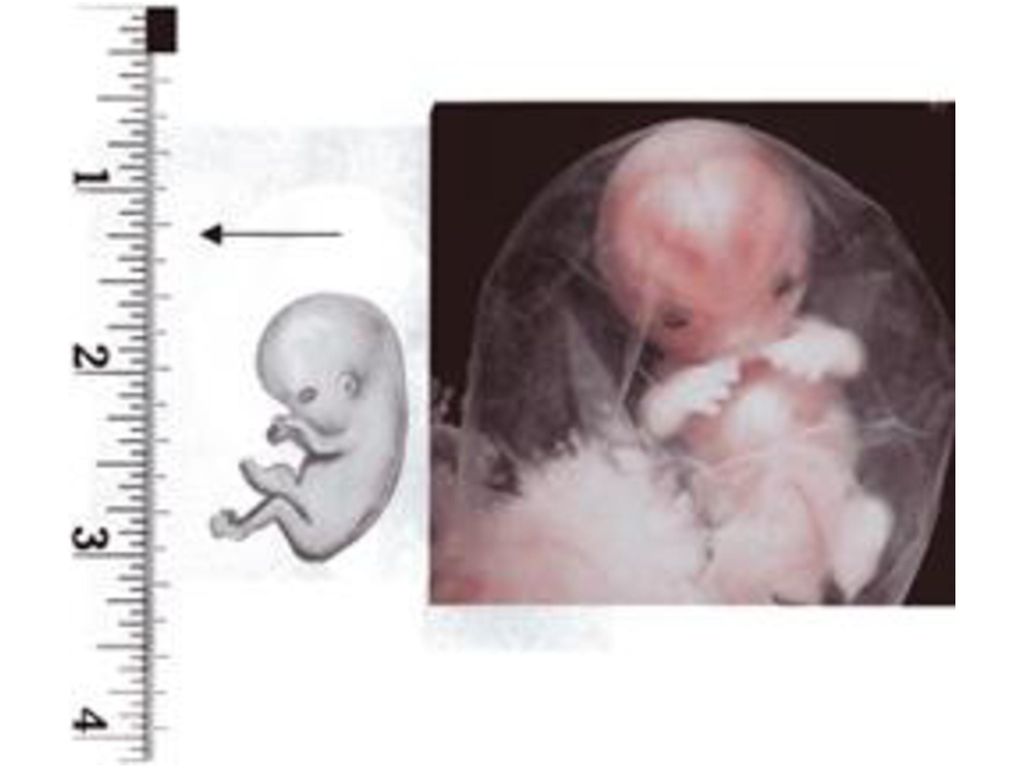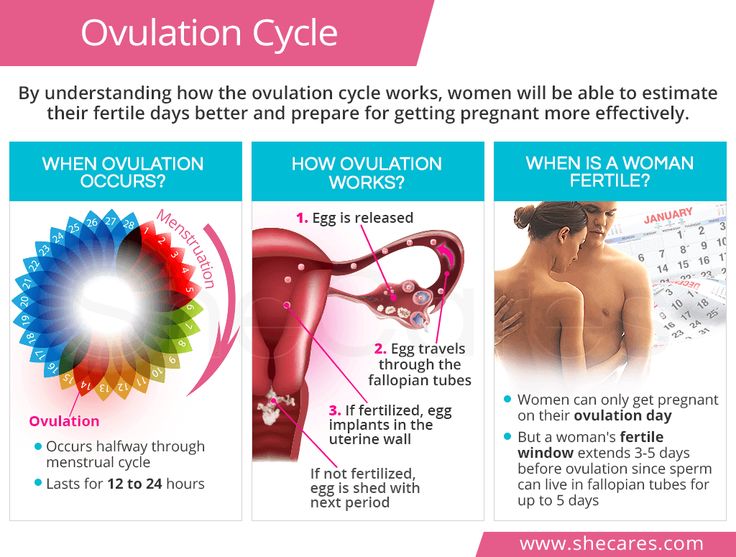Foods in pregnancy nhs
Foods to avoid in pregnancy
Most foods and drinks are safe to have during pregnancy. But there are some things you should be careful with or avoid.
Cheese, milk and other dairyWhat you can eat
- pasteurised or unpasteurised hard cheeses, such as cheddar, Gruyere and parmesan
- pasteurised semi-hard cheeses, such as Edam and Stilton
- pasteurised soft cheeses, such as cottage cheese, mozzarella, feta, cream cheese, paneer, ricotta, halloumi, goats' cheese without a white coating on the outside (rind) and processed cheese spreads
- soft or blue cheese (pasteurised or unpasteurised) that has been cooked until steaming hot
- pasteurised milk, yoghurt, cream and ice cream
What to avoid
- any other foods made from unpasteurised milk, such as soft ripened goats' cheese
- pasteurised or unpasteurised mould-ripened soft cheeses with a white coating on the outside, such as Brie, Camembert and chèvre (unless cooked until steaming hot)
- pasteurised or unpasteurised soft blue cheeses, such as Danish blue, Gorgonzola and Roquefort (unless cooked until steaming hot)
- unpasteurised cows' milk, goats' milk, sheep's milk or cream
Why
There's a small chance that unpasteurised or soft ripened dairy products may contain Listeria bacteria. This can cause an infection called listeriosis.
Listeriosis can lead to miscarriage or stillbirth, or make your newborn baby very unwell.
Soft cheeses with a white coating on the outside have more moisture. This can make it easier for bacteria to grow.
Cooking cheese until it's steaming hot kills bacteria, reducing the risk of listeriosis.
Meat and poultryWhat you can eat
- meats such as chicken, pork and beef, as long as they're well-cooked with no trace of pink or blood; be especially careful with poultry, pork, sausages and burgers
- cold, pre-packed meats such as ham and corned beef
What to be careful with
- cold cured meats, such as salami, pepperoni, chorizo and prosciutto (unless cooked thoroughly)
What to avoid
- raw or undercooked meat
- liver and liver products
- all types of pâté, including vegetarian pâté
- game meats such as goose, partridge or pheasant
Why
There's a small risk of getting toxoplasmosis if you eat raw and undercooked meat, which can cause miscarriage.
Cured meats are not cooked, so they may have parasites in them that cause toxoplasmosis.
Liver and liver products have lots of vitamin A in them. This can be harmful to an unborn baby.
Game meats may contain lead shot.
EggsWhat you can eat
- raw, partially cooked and fully cooked British Lion hen eggs (they have a lion stamp on them) and hen eggs produced under the Laid in Britain scheme
- foods made with raw hen egg, such as mousse and mayonnaise, if made with British Lion eggs or hen eggs produced under the Laid in Britain scheme
- well cooked eggs (white and yolk) from any hen eggs that are not British Lion eggs or produced under the Laid in Britain scheme
- well cooked eggs (white and yolk) of all other eggs, including duck, goose or quail
What to avoid
- raw or partially cooked hen eggs that are not British Lion or produced under the Laid in Britain scheme
- raw or partially cooked duck, goose or quail eggs
Why
British Lion hen eggs and hen eggs produced under the Laid in Britain scheme are less likely to have salmonella in them.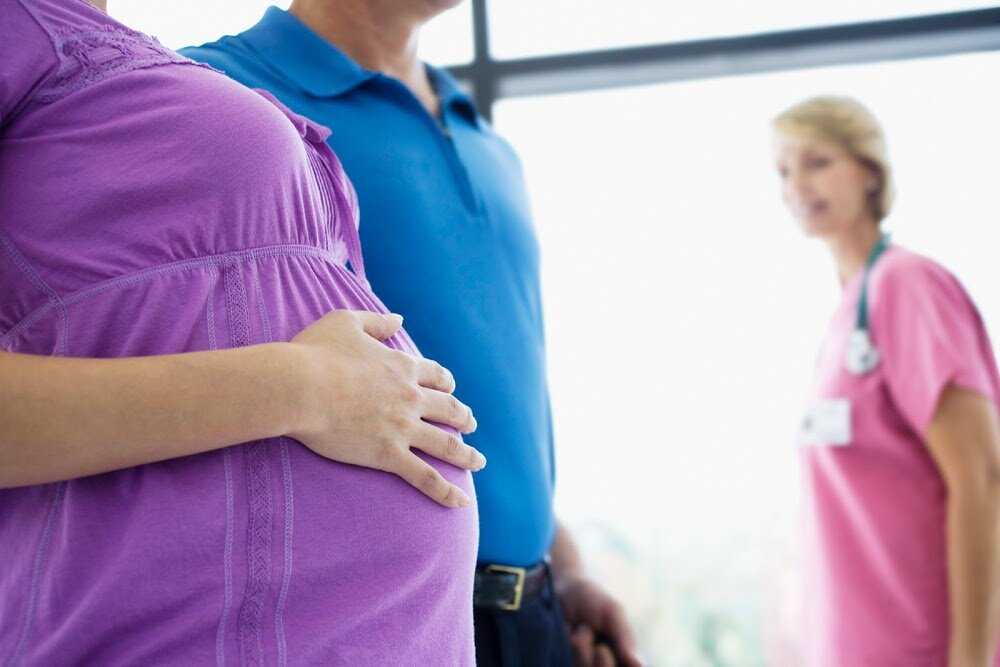
Salmonella is unlikely to harm your unborn baby, but you could get food poisoning.
You should cook all eggs thoroughly, unless they are British Lion hen eggs or hen eggs produced under the Laid in Britain scheme.
FishWhat you can eat
- cooked fish and seafood
- sushi, as long as the fish has been cooked thoroughly
- cooked shellfish, such as mussels, lobster, crab, prawns, scallops and clams
- cold pre-cooked prawns
What to be careful with
- smoked fish, such as smoked salmon and trout
Smoked fish and listeria
Due to a listeria outbreak linked to smoked fish, people at higher risk of serious infection (including people who are pregnant) should only eat smoked fish products that have been thoroughly cooked.
When cooking smoked fish products at home, make sure they are steaming hot all the way through.
Find out more about the listeria outbreak in smoked fish from the Food Standards Agency
What to limit
- you should eat no more than 2 portions of oily fish a week, such as salmon, trout, mackerel or herring
- you should eat no more than 2 tuna steaks (about 140g cooked or 170g raw) or 4 medium-size cans of tuna (about 140g when drained) per week
Information:
Tuna does not count as an oily fish
You can have 2 tuna steaks, or 4 medium-size cans of fish, as well as 2 portions of oily fish.
What to avoid
- swordfish
- marlin
- shark
- raw shellfish
Why
You should limit tuna because it has more mercury in it than other fish.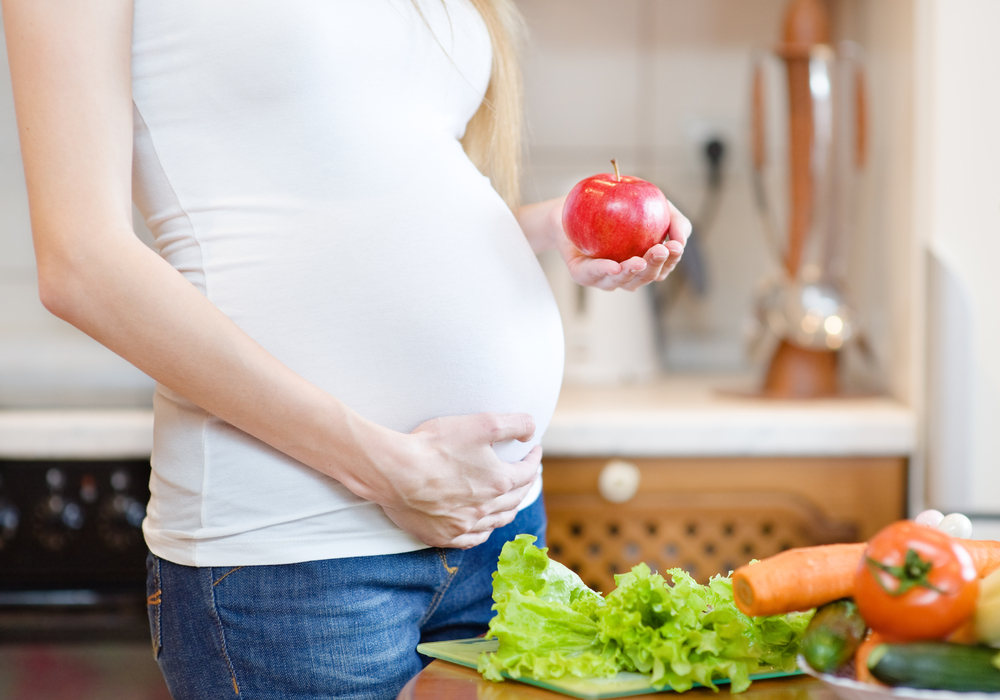 If you eat too much mercury, it can be harmful to your unborn baby.
If you eat too much mercury, it can be harmful to your unborn baby.
You should limit oily fish because they can have pollutants such as dioxins and polychlorinated biphenyls in them. If you eat too much of these, they can be harmful to your unborn baby.
You should avoid raw shellfish because they can have harmful bacteria, viruses or toxins in them. These can make you unwell and give you food poisoning.
Other foods and drinksCaffeine
You can have caffeine, but no more than 200mg per day.
There is:
- 100mg in a mug of instant coffee
- 140mg in a mug of filter coffee
- 75mg in a mug of tea (green tea can have the same amount of caffeine as regular tea)
- 40mg in a can of cola
- 80mg in a 250ml can of energy drink
- less than 25mg in a 50g bar of plain dark chocolate
- less than 10mg in a 50g bar of plain milk chocolate
Alcohol
Drinking alcohol in pregnancy can lead to long-term harm to your baby.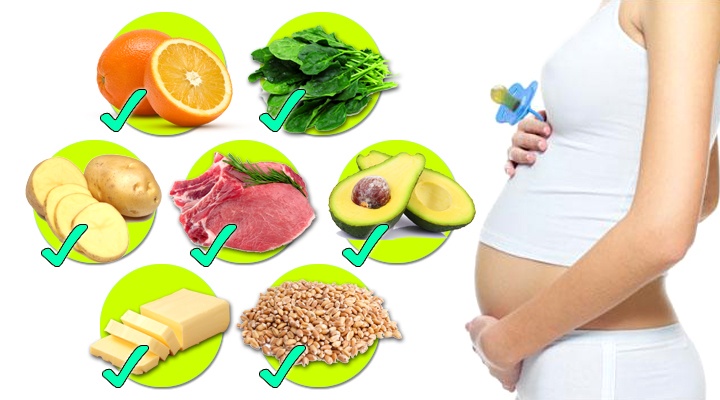
If you're pregnant or planning to get pregnant, the safest approach is to not drink alcohol at all.
This keeps risks to your baby to a minimum.
Herbal teas
You should drink no more than 4 cups of herbal tea a day.
Liquorice
Liquorice is safe to eat. But you should avoid liquorice root.
Fruits, vegetables and salads
Be careful with fruits, vegetables and salads as they can have soil on them, which can make you unwell.
Make sure to thoroughly wash all fruits, vegetables and salad ingredients.
Peanuts
You do not need to avoid eating peanuts when you're pregnant.
Only avoid eating peanuts if you're advised to by a healthcare professional or if you have a nut allergy.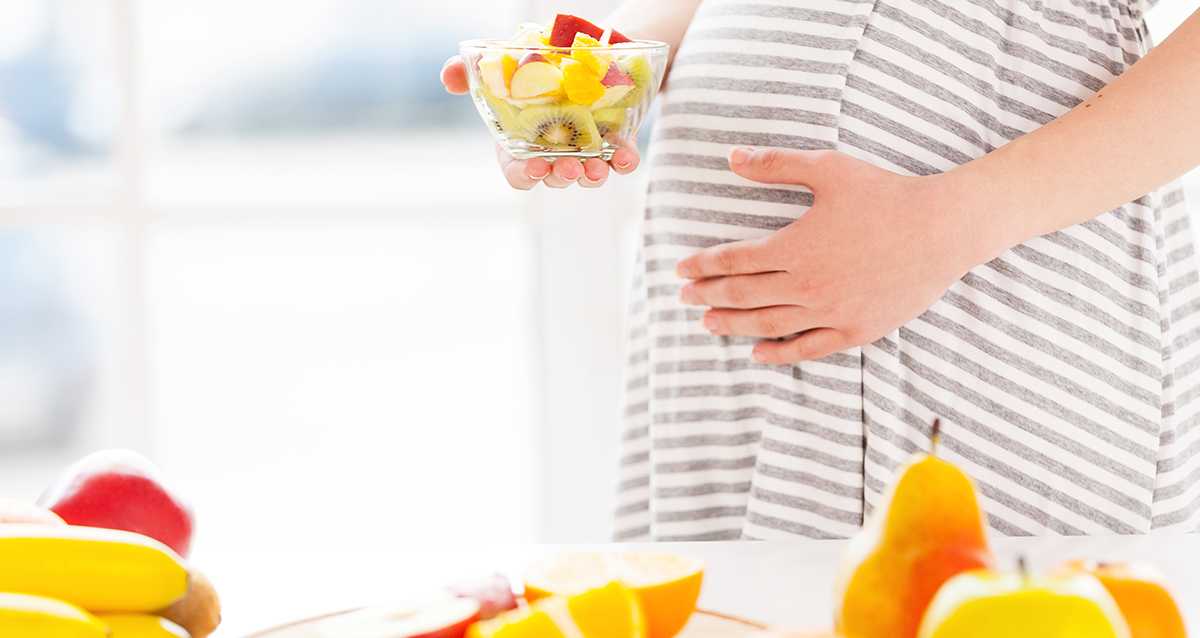
Vitamins
Do not take high-dose multivitamin supplements, or any supplements with vitamin A in them.
Urgent advice: Call 111 if:
- you feel unwell after eating one of the foods to avoid
- you have signs of listeriosis or toxoplasmosis infection
Try not to worry if you've eaten one of the foods to avoid.
Get Start4Life pregnancy and baby emails
Sign up for Start4Life's weekly emails for expert advice, videos and tips on pregnancy, birth and beyond.
Page last reviewed: 16 April 2020
Next review due: 16 April 2023
Sex in pregnancy - NHS
It's perfectly safe to have sex during pregnancy unless your doctor or midwife has told you not to.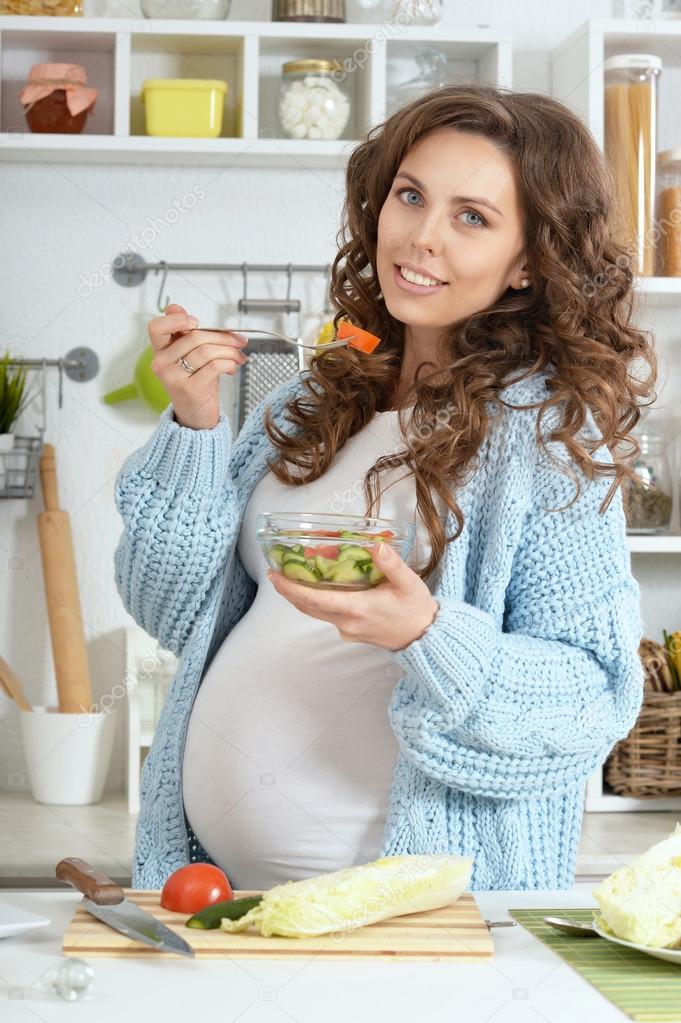
Having sex will not hurt your baby. A penis or penetrative sex toy cannot penetrate beyond your vagina, and the baby cannot tell what's going on.
However, it's normal for your sex drive to change during pregnancy. This isn't something to worry about, but it's helpful to talk about it with your sexual partner.
You may find having sex very enjoyable during pregnancy, or simply feel you don't want to. You can find other ways of being loving or making love. The most important thing is to talk about your feelings with your partner.
If your pregnancy is normal and you have no complications, having sex and orgasms won't increase your risk of going into labour early or cause a miscarriage.
Later in pregnancy, an orgasm or even sex itself can set off mild contractions. If this happens, you'll feel the muscles of your womb go hard. These are known as Braxton Hicks contractions and can be uncomfortable, but they're perfectly normal and there's no need for alarm. You might want to try some relaxation techniques or just lie down until the contractions pass.
You might want to try some relaxation techniques or just lie down until the contractions pass.
When to avoid sex in pregnancy
Your midwife or doctor will probably advise you to avoid sex if you've had any heavy bleeding in this pregnancy. Sex may increase the risk of further bleeding if the placenta is low or there's a collection of blood (haematoma).
You'll also be advised to avoid sex if:
- your waters have broken – it can increase the risk of infection (ask your midwife or doctor if you're not sure whether your waters have broken)
- there are any problems with the entrance to your womb (cervix) – you may be at a higher risk of going into early labour or having a miscarriage
- you're having twins, or have previously had early labours, and are in the later stages of pregnancy
If you or your sexual partner are having sex with other people during your pregnancy, it's important you use a barrier form of contraception, such as a condom, to protect you and your baby from sexually transmitted infections (STIs).
Good and bad sex positions during pregnancy
While sex is safe for most couples in pregnancy, it may not be all that easy. You will probably need to find different positions. This can be a time to explore and experiment together.
Sex with your partner on top can become uncomfortable quite early in pregnancy, not just because of the bump, but because your breasts might be tender. It can also be uncomfortable if your partner penetrates you too deeply.
It may be better to lie on your sides, either facing each other or with your partner behind. You may also want to try being on top during sex or being penetrated from behind while on your hands and knees. Use pillows to make yourself comfortable.
Get Start4Life pregnancy and baby emails
Sign up for Start4Life's weekly emails for expert advice, videos and tips on pregnancy, birth and beyond.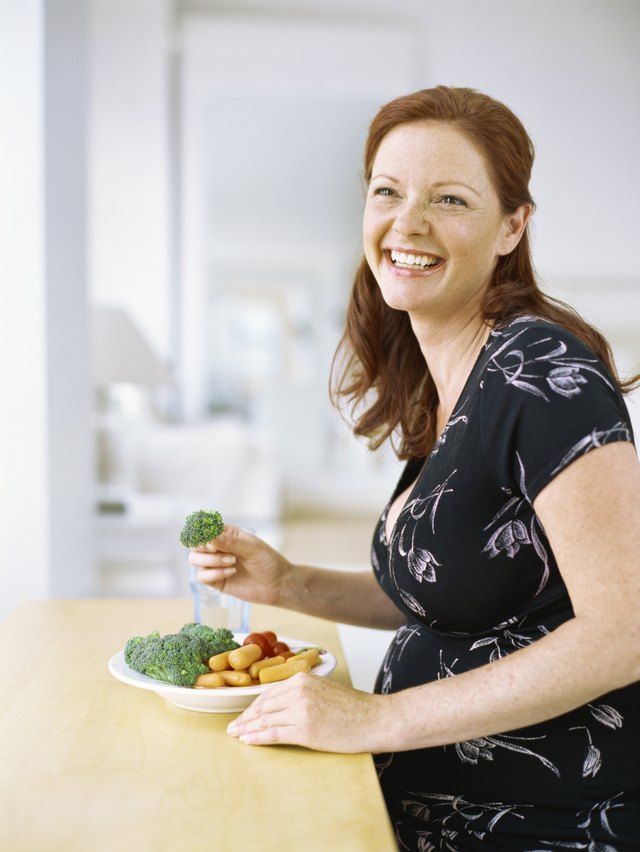
Video: Sex during pregnancy
This video explores the myths surrounding sex during pregnancy.
Media last reviewed: 2 December 2020
Media review due: 2 December 2023
Page last reviewed: 16 March 2021
Next review due: 16 March 2024
Nutrition of a pregnant woman
So, your plans and decisions to give birth to a child have come true - you are pregnant! But this news causes you a double feeling: - on the one hand, a feeling of joy, and on the other hand, a feeling of certain fear and even fear of unknown trials for your life and the fate of the unborn baby. What will he be like? - healthy, beautiful, happy?...
And this largely depends on the woman herself, on what lifestyle she will lead during pregnancy and, most importantly, how she will eat.
Nutrition of a woman in different periods of pregnancy
The main thing in the menu of a future mother is variety.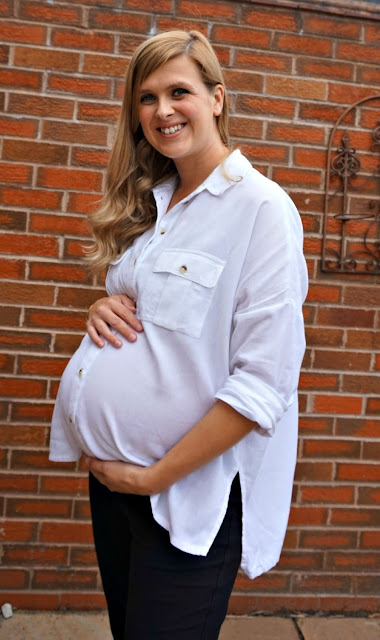 She should consume foods from all food groups: meat, fish, vegetables and fruits, dairy products, bread and cereals.
She should consume foods from all food groups: meat, fish, vegetables and fruits, dairy products, bread and cereals.
A woman's nutrition during pregnancy can be roughly divided into three periods (trimesters).
If before pregnancy a woman ate normally, felt comfortable, did not experience allergies to any products, then it is not worth changing her diet at an early stage of the first trimester of pregnancy.
During this period, all organs and systems in the child's body are formed, tissues are formed. The body needs complete proteins and vitamins: lean meat (rabbit, chicken, turkey), fish and seafood, dairy products. Be sure to eat rice, fresh or frozen vegetables, seasonal fruits. In the first trimester, many expectant mothers are still working. No matter how difficult it is to control your diet in the workplace, you need to do it - find time for a full breakfast and lunch.
In the first trimester of pregnancy, there is an active restructuring of the body and adaptation to a new state.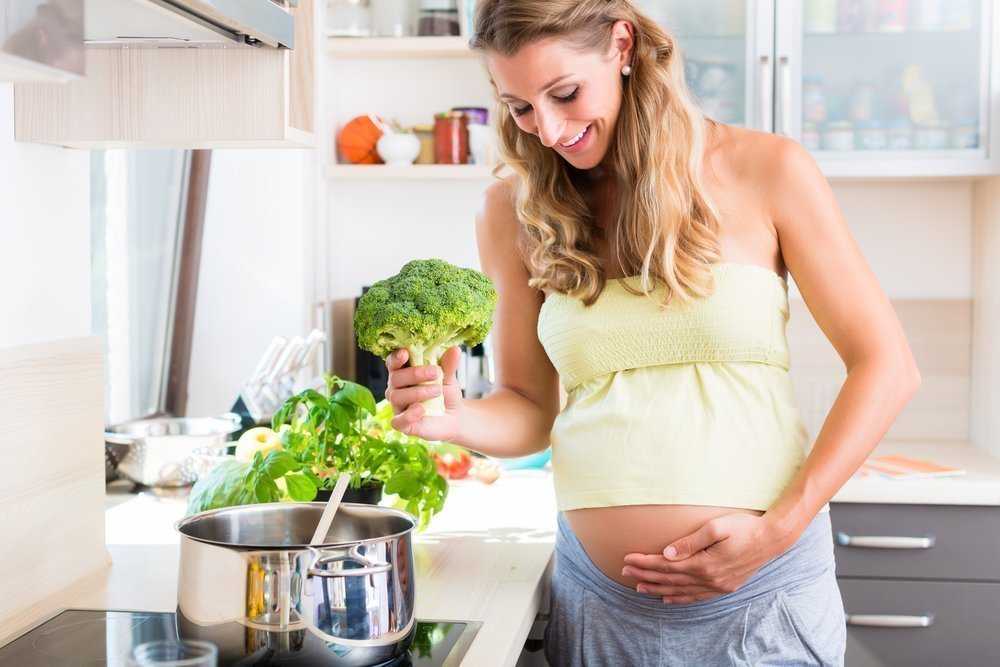 During this period, it is recommended to switch to a low-calorie diet, which includes more fruits, juices, decoctions of dried fruits, including rose hips. At the very beginning of pregnancy, especially if toxicosis torments, more frequent, but less plentiful meals are recommended.
During this period, it is recommended to switch to a low-calorie diet, which includes more fruits, juices, decoctions of dried fruits, including rose hips. At the very beginning of pregnancy, especially if toxicosis torments, more frequent, but less plentiful meals are recommended.
Always keep a hematogen, a bag of nuts or dried fruit in your pocket to have a snack on the street. If your condition does not allow you to eat regular food, you should pay attention to baby food. Baby products literally save expectant mothers suffering from severe toxicosis. These are boxed cereals, children's curds, cookies and fruit purees.
In the first trimester, special attention must be paid to the quality of products. Gradually abandon sauces, semi-finished products and canned food containing harmful chemical additives. Do not forget that the placenta freely accumulates and passes chemistry. The importance of products containing folic acid is great, without it intensive metabolism is impossible, its deficiency can cause developmental abnormalities.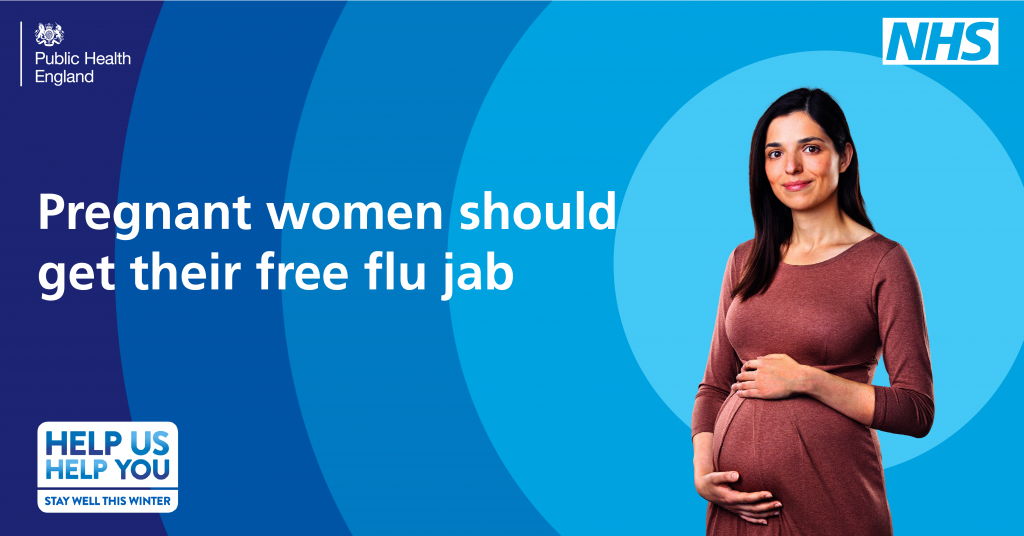 Folic acid is found in greens, nuts, white cabbage and broccoli, beets, legumes, and eggs.
Folic acid is found in greens, nuts, white cabbage and broccoli, beets, legumes, and eggs.
According to nutritionists, the diet of pregnant women should be 300 kcal / day higher than that of non-pregnant women, but in the first trimester there is no need to increase the energy value of the diet at all; in the second trimester, an additional 340 kcal / day is required; in the third trimester - 452 kcal / day. Pregnant women generally get enough calories, and more than 80% of women achieve and even exceed the required weight gain. These extra calories benefit the fetus. An underweight woman should gain 16–20 kg during her entire pregnancy, an overweight woman about 7 kg, and a normal body weight of 11–12 kg.
In the second trimester there are active jumps in the height and weight of the baby and uterus, so the caloric content of the diet needs to be increased. It is desirable to eat more and better. At this time, the need for trace elements increases: iron, magnesium, zinc, selenium, calcium, potassium.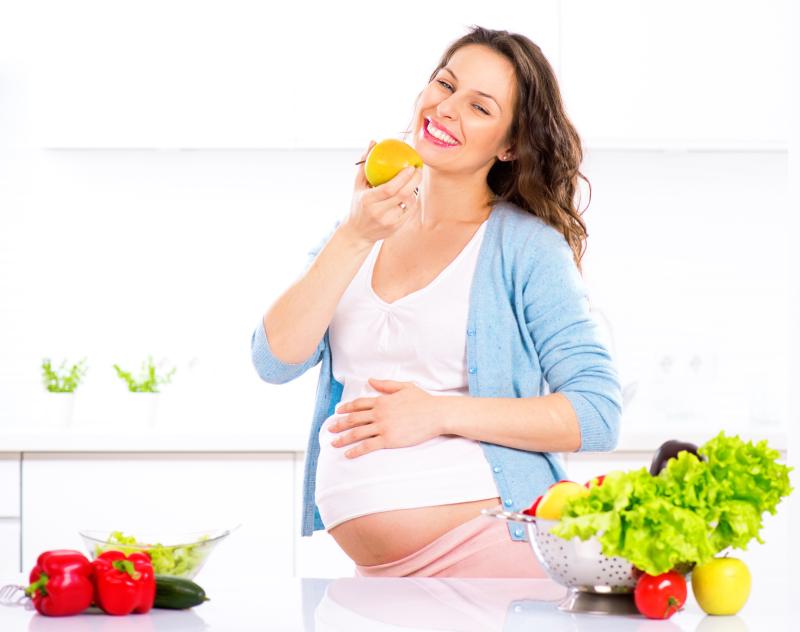 The child creates his own "reserve" of trace elements using the mother's resource, which means that the mother should have enough of them for two.
The child creates his own "reserve" of trace elements using the mother's resource, which means that the mother should have enough of them for two.
Very often in pregnant women in the second trimester hemoglobin drops, this is a normal physiological phenomenon, if it is not threatening to health. You can increase hemoglobin by eating red meat, chicken, fish, dried fruits, pomegranates, green vegetables and fresh herbs, buckwheat, citrus fruits (oranges, grapefruits, pomelo, lemons), rosehip and berry infusions.
In the second trimester, a pregnant woman should limit the intake of smoked and fried foods, as well as salt in her diet. In no case should you limit the liquid. Pure water is the best drink for a pregnant woman, and water should be consumed up to 2-2.5 liters per day. Water is a natural drink for the body, it does not cause complications and has no contraindications. Edema is caused not by water, but by salt, which we not only add in its pure form, but also consume with canned food, mayonnaise, cheese, and sausage. The absence of salt is not harmful, it is naturally found in many products: vegetables, bread, so the diet will not remain completely without it. Excess salt disrupts metabolism.
The absence of salt is not harmful, it is naturally found in many products: vegetables, bread, so the diet will not remain completely without it. Excess salt disrupts metabolism.
During this period, you can increase the calorie content of food. Childbirth must be approached physically strong. It is better to eat meat and fish in the morning, for breakfast and lunch, and for dinner, prepare dairy and vegetable dishes: cheesecakes, stewed vegetables, cottage cheese and vegetable casseroles. It is necessary to minimize the intake of canned food, smoked meats, pickles and marinades, hot spices and fatty foods. Frequent walks in the air, physical activity are recommended.
In the third trimester, it is necessary to reduce the calorie content of foods at the expense of confectionery and flour products, eat less fatty meat, as well as cheese and sour cream.
By the end of this period, many experts advise pregnant women to give up meat altogether in order to increase tissue elasticity and prevent ruptures.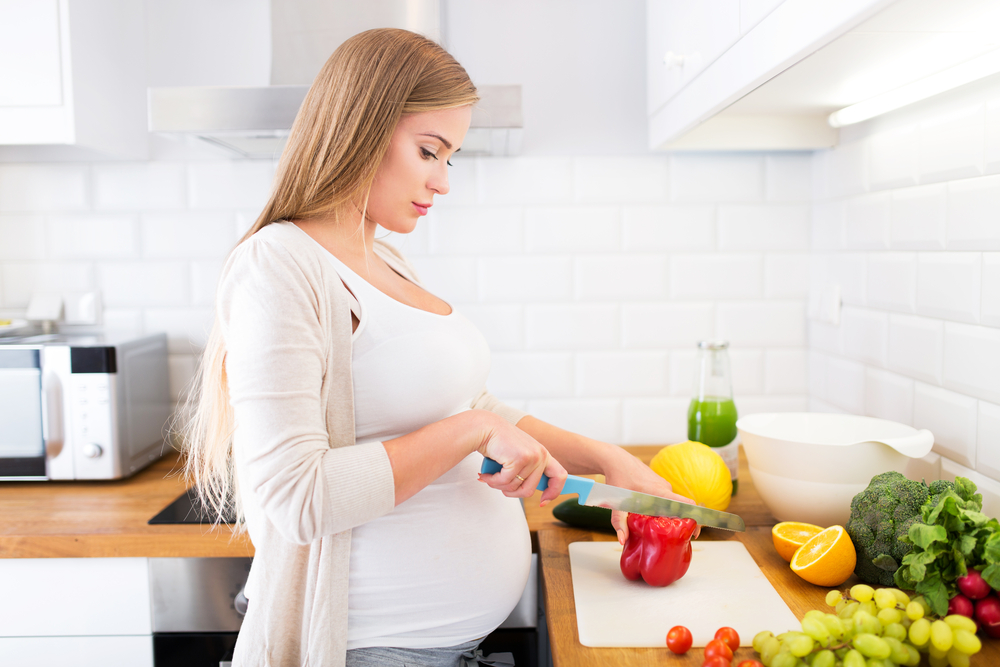
During the entire period of pregnancy, special attention should be paid to the combination of products. If you combine foods wisely, you can ensure more efficient absorption of food. If the food is digested poorly, then this can lead to rotting and fermentation of products and the formation of substances harmful to the body of the mother and child. In addition, the fermentation process is accompanied by gas formation, which can lead to flatulence (bloating) and discomfort. This is especially harmful in the last stages of pregnancy.
Try not to take the first, second and third course at the same time; this overflows the stomach and presses on the fetus, the food is poorly digested and poorly absorbed. Eat little and often. It is not recommended to eat immediately before starting work, a long walk, before charging and immediately after it; it is advisable to rest for 10 minutes before eating.
Eat only when you are hungry, try not to snack on the go. Follow the diet, eat at about the same time.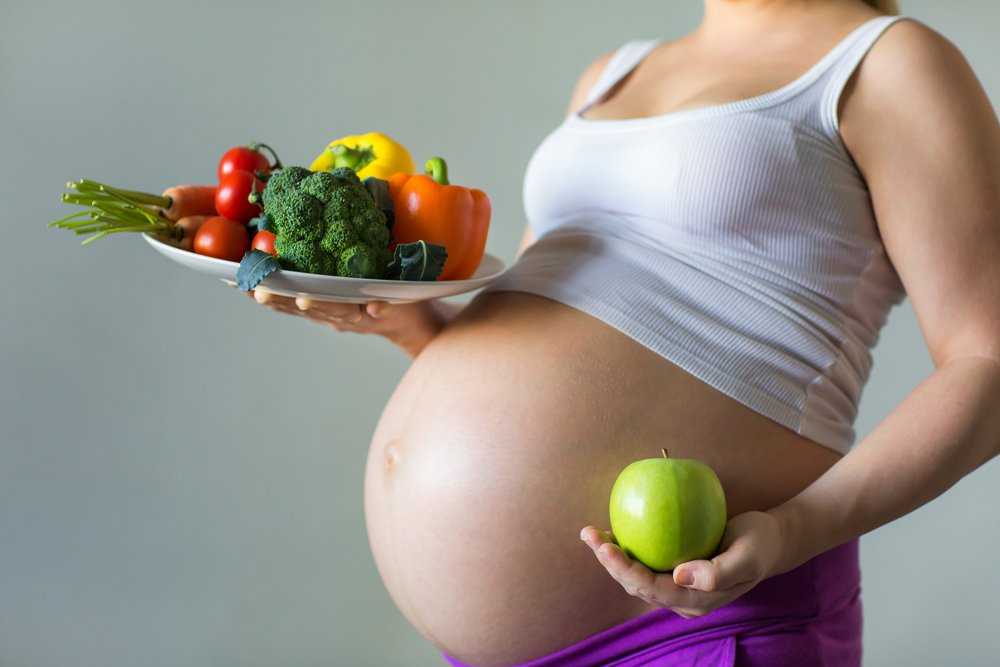
Proper preparation of food will help to maximize the useful substances contained in the products. Do not overcook food, try not to reheat the same dish several times, it is better to set aside only the portion that will be used. Cook in the most gentle way: baking, steaming, stewing. Avoid frying, boiling in large amounts of water, with this method of processing products, many useful substances are lost. If possible, do not cook for several days at once. Do not use aluminum cookware when cooking. Remember that for a pregnant woman, it is not calories that are important, but the quality of food, its naturalness, primarily a “living cell” (whole cereals, raw vegetables and fruits, fresh meat and dairy products).
What can harm the pregnant woman and the fetus
Smoking and alcohol – quit smoking from the first days of pregnancy, if you have smoked before, avoid "passive" smoking, and do not consume alcoholic beverages in any doses.
Lack of vitamins and microelements in the body - their absence or deficiency can lead to irreparable consequences. So, for example, iodine deficiency can lead to mental retardation of a child, folic acid deficiency - to severe fetal deformities, calcium deficiency - to a violation of the formation of the child's skeleton, iron deficiency - to anemia and a delay in the physical and neuropsychic development of the child. It is necessary to consult a doctor, perhaps he will recommend switching to iodized salt, as well as supplementing your diet with a vitamin-mineral complex and folic acid.
Excess weight is the risk of having a large child, which means the risk of complications during childbirth and the child's tendency to become obese at an older age.
The use of food additives (sauces, seasonings such as vegeta, bouillon cubes), exotic fruits, semi-finished products, carbonated drinks - the risk of allergies and anomalies in a child, unfortunately, increases.
Recommended for pregnant women:
- Do not eat hot dogs and other snacks containing meat that has not been heated on fire or boiled in boiling water.
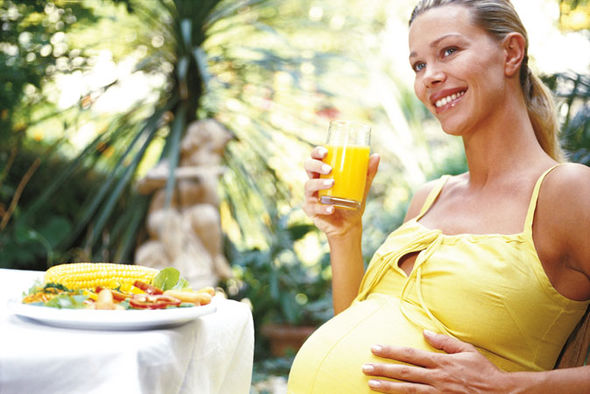
- Avoid soft cheeses. Hard cheeses are safe.
- Do not eat raw frozen pies and meat pastes, seafood. Canned analogues are safe.
- Do not consume raw vegetables, unpasteurized juices, liver, meat, poultry and eggs that have not been sufficiently cooked. These products may contain Salmonella taxins.
- Limit sweets.
- In no case do not resort to starvation and various diets.
- Regularly monitor blood pressure and do not miss visits to the gynecologist.
Remember!
Your child's development and health depend on your diet and lifestyle during pregnancy!
Healthy nutrition during pregnancy
Category: Healthy food.
Happiness, agonizing expectation, anticipation and even fear - all these feelings inevitably accompany pregnant women. And it is very important during this period not to surrender to emotions, but to remember the responsibility that is an integral part of this time.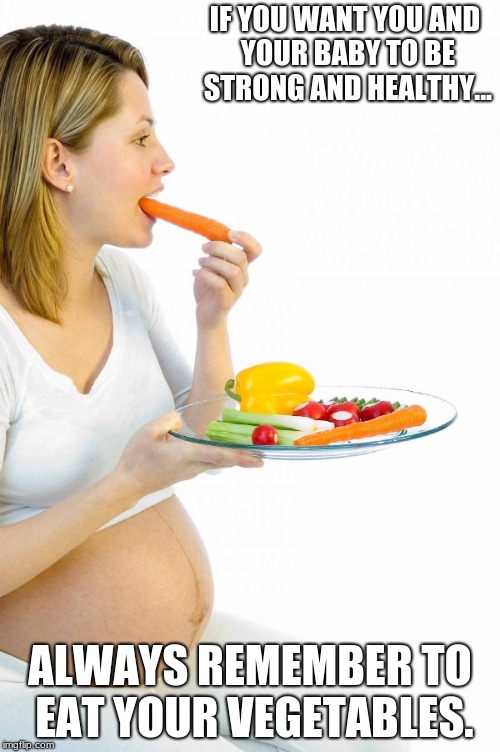 It is during this period that it is important to follow the basics of a healthy lifestyle, taking into account the requirements of pregnancy. Proper nutrition during pregnancy is the most relevant, since what a woman eats largely determines how her child will develop. For example, whether a pregnant woman receives enough protein depends on whether the child will have enough building material.
It is during this period that it is important to follow the basics of a healthy lifestyle, taking into account the requirements of pregnancy. Proper nutrition during pregnancy is the most relevant, since what a woman eats largely determines how her child will develop. For example, whether a pregnant woman receives enough protein depends on whether the child will have enough building material.
It makes sense to take into account one important feature: proper nutrition in early pregnancy will be somewhat different from the diet of a pregnant woman in the last weeks.
Not everyone understands where such differences come from, but understanding the topic will be quite simple. Judge for yourself, important systems of the body are laid in the early stages, but the size of the fetus increases slightly. Therefore, in the early stages, a healthy diet for pregnant women is based on sufficient intake of minerals, vitamins, and the like.
In the second trimester of pregnancy, nutrition should focus on increased protein intake, since it is now that the active growth of the child and its internal organs begins. All this requires a building material, that is, protein.
All this requires a building material, that is, protein.
Nutrition in the third trimester of pregnancy is, first of all, vitamins and minerals that are necessary for the development of the internal systems of the child's body, especially calcium for bone growth and the development of the nervous system.
When planning a pregnancy, proper nutrition is also very important. The more healthy, hardy, strong the woman's body is at the time of conception, the greater the chances of successfully fixing the fetal egg in the uterus. And a certain set of vitamins in the body contributes to the proper development of the embryo.
As you can see, the difference in recommendations for proper nutrition of pregnant women by months, and sometimes even by weeks, is quite justified. However, there are, of course, general rules for proper nutrition during pregnancy, which will be discussed further.
General principles of good nutrition during pregnancy
First of all, it is worth remembering one simple thing: it is better to get up from the table slightly hungry than with heaviness in the stomach from overeating.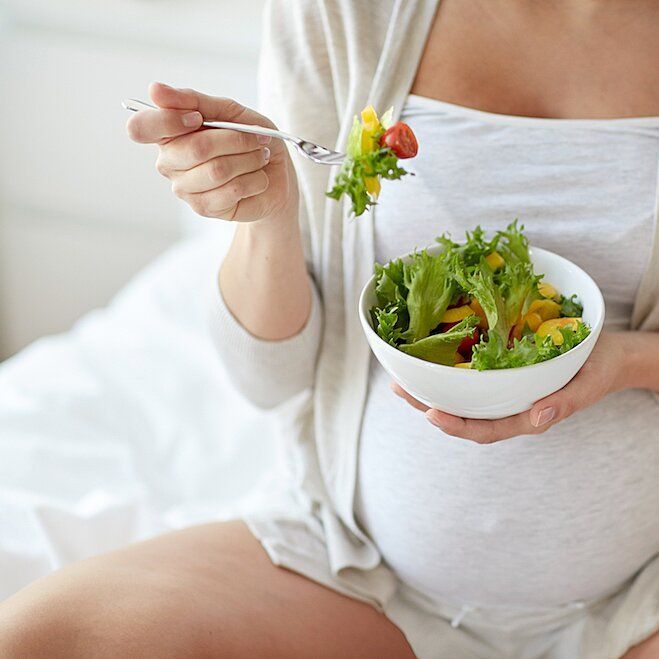 In this regard, it is better to adhere to the principles of fractional nutrition at all: eat less, but more often. The ideal option would be to eat 5-6 times a day. The last meal should be 3 hours before bedtime. If the feeling of hunger is unbearable, you can drink a glass of milk or yogurt, eat an apple or a pear. It is this diet for pregnant women that will be most optimal.
In this regard, it is better to adhere to the principles of fractional nutrition at all: eat less, but more often. The ideal option would be to eat 5-6 times a day. The last meal should be 3 hours before bedtime. If the feeling of hunger is unbearable, you can drink a glass of milk or yogurt, eat an apple or a pear. It is this diet for pregnant women that will be most optimal.
Proper nutrition during pregnancy, like, in fact, any proper nutrition, involves the exclusion or maximum restriction of fried foods, pickled foods and smoked meats. Steamed, boiled, stewed or baked food will be much more useful. Food for pregnant women should be as fresh and natural as possible, should not contain preservatives, excess salt, and the like.
Obviously, canned foods, various sausages and other long-term storage products, if not banned, then require strict control of their use.
Of course, it is recommended to give up fast food. However, it is worth noting that if the choice arises - to remain hungry or eat something not very healthy, it is better to choose the latter.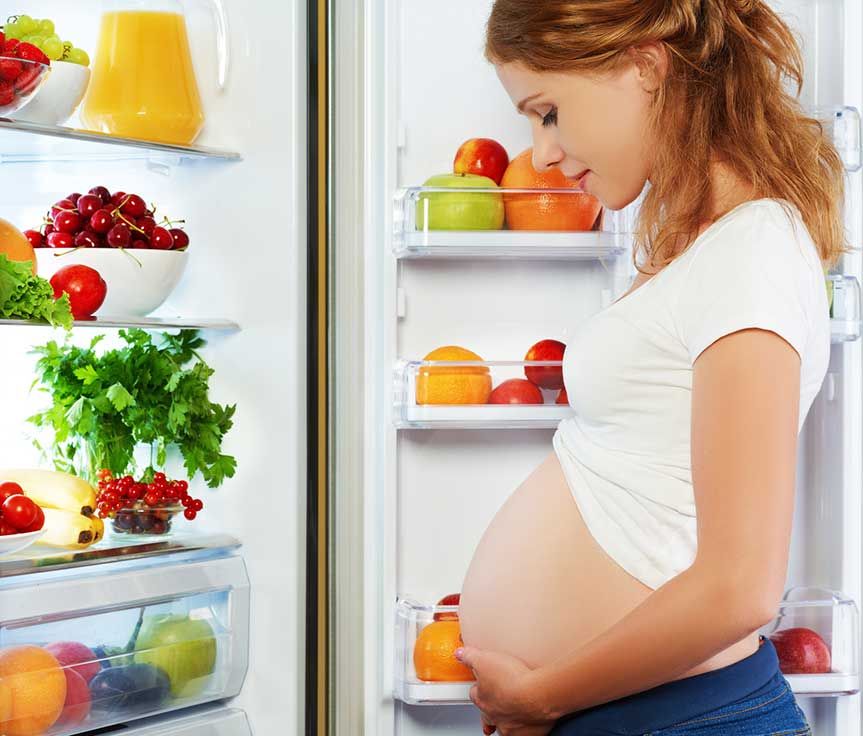 A pregnant woman should not starve. Another thing is, if you get suspiciously often before such a choice, then you should think about carrying fruits or sandwiches with you.
A pregnant woman should not starve. Another thing is, if you get suspiciously often before such a choice, then you should think about carrying fruits or sandwiches with you.
Of great importance is the balance between such important components of nutrition as proteins, fats, carbohydrates, as well as vitamins and minerals. Of course, a balanced diet for pregnant women at different times implies a different balance of these components, the fact itself remains unchanged.
Weekly meals
1-3 weeks pregnant
Gynecologists count pregnancy not from the day of conception, since it is almost impossible to calculate it, but from the first day of the last menstruation. Therefore, the first 2 weeks of the obstetric gestation period falls on the time before conception.
Pregnancy planning is an extremely important period, on which, whatever one may say, both the health of the unborn child and the absence of any complications during pregnancy depend. So it turns out that proper nutrition before pregnancy is of paramount importance. At this stage, it is very important to increase the amount of folic acid. Doctors often recommend drinking it in the form of capsules, but it is much better to get all the vitamins from normal food. Folic acid is found in green leafy vegetables (spinach, lettuce, cabbage, etc.), asparagus, beans and legumes, seeds and nuts, citrus fruits.
So it turns out that proper nutrition before pregnancy is of paramount importance. At this stage, it is very important to increase the amount of folic acid. Doctors often recommend drinking it in the form of capsules, but it is much better to get all the vitamins from normal food. Folic acid is found in green leafy vegetables (spinach, lettuce, cabbage, etc.), asparagus, beans and legumes, seeds and nuts, citrus fruits.
It is equally useful to consume yellow fruits and vegetables. But it is better to refuse fatty and sweet foods. This will avoid problems with obesity, as well as reduce the risk of early toxicosis.
Approximately on the 10-14th day of the cycle, fertilization occurs and the movement of the fetal egg begins towards the uterus. From this time on, we can talk about the onset of pregnancy.
3rd week
Nutrition at the beginning of pregnancy is a very complicated topic, since literally every week new organs and systems appear in the fetus, which means that the need for vitamins and nutrients is constantly changing.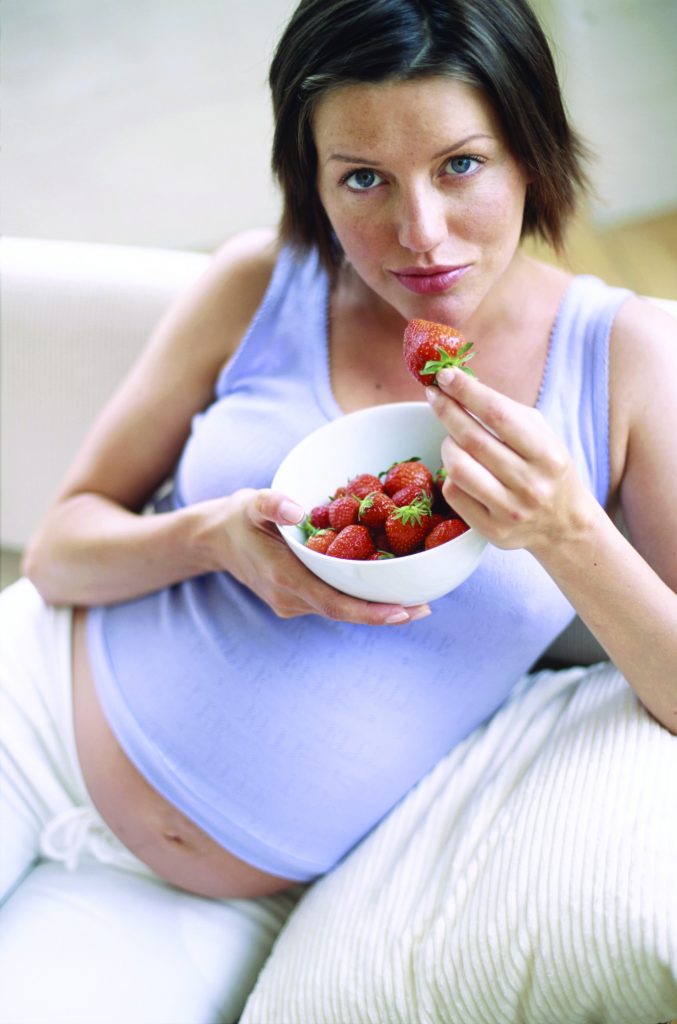
In the third week of pregnancy, the egg is implanted and the placenta begins to develop, as well as the fetal membrane. For their full development, calcium is needed, which is found in dairy products, nuts, fish, legumes, fruit juices and cereals; and manganese, it can be obtained from nuts, spinach, beets, mushrooms, animal liver.
4 weeks
For 4 weeks, the nutrition remains the same as for 3, but at this time it is especially important to give up coffee. However, drinking this certainly tasty, but not very healthy drink during pregnancy should be done with extreme caution. Especially coffee is contraindicated in the evening. As you can see, proper nutrition in the first month of pregnancy is not too difficult. Further it will be a little more difficult.
5 week
As a rule, toxicosis of pregnant women begins around this time. To alleviate this condition, you can slightly change your daily menu.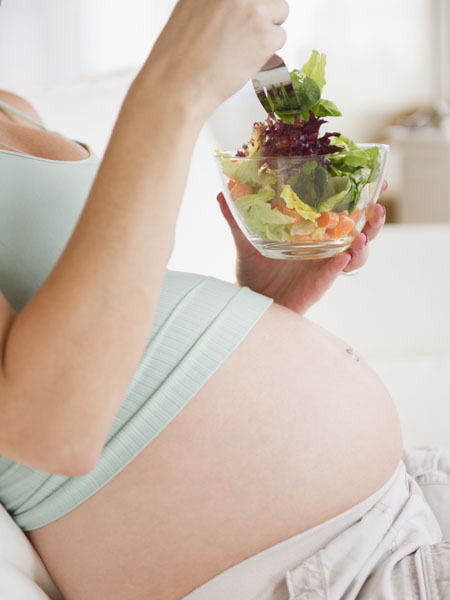 So, meat and eggs, as well as other animal proteins, can be replaced with nuts, soy and other legumes. Instead of milk, you can eat yogurt and cheese. It will not be superfluous to introduce carrots, mangoes, apricots into the diet.
So, meat and eggs, as well as other animal proteins, can be replaced with nuts, soy and other legumes. Instead of milk, you can eat yogurt and cheese. It will not be superfluous to introduce carrots, mangoes, apricots into the diet.
6 week
Toxicosis is in full swing, so the morning should start with crackers or unsweetened crackers. It is better to eat them immediately after waking up, without getting out of bed. At this stage, it is better to drink plenty of fluids, at least 8 glasses a day (for example: water with lemon juice or tea with lemon). At night, you can eat a handful of raisins.
7 week
At this time, problems with the intestines may arise. Therefore, you should avoid foods that promote gas formation, including cabbage. It will not be superfluous to refuse those products that strengthen. It is better to introduce prunes, fresh kefir and the like into the diet.
8 week
Ginger tea will help to cope with toxicosis, and do not forget about nuts.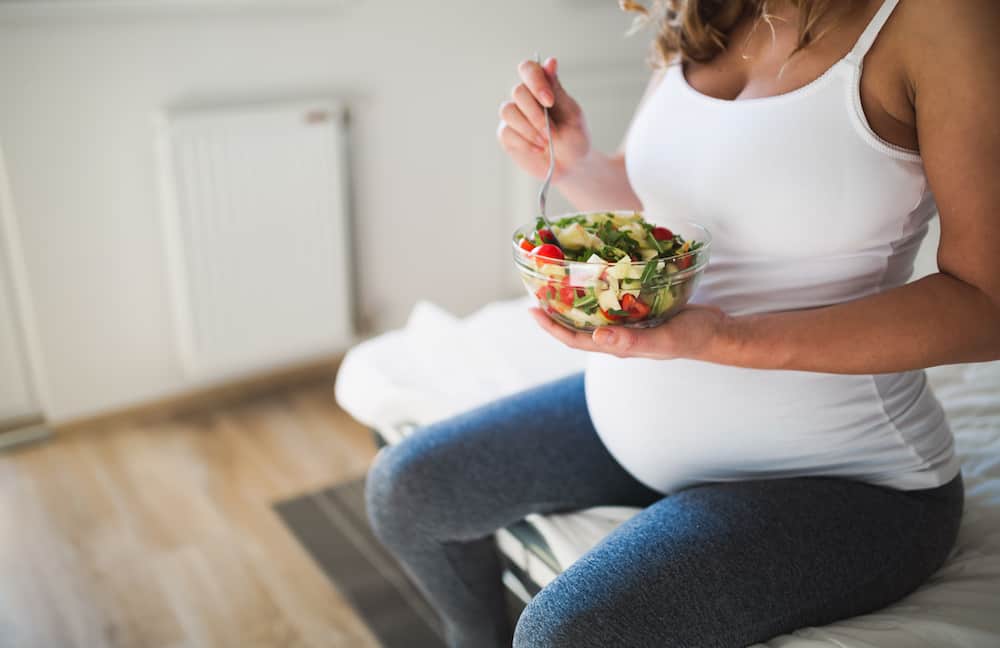
9-10 weeks
Give preference to whole grain cereals and whole grain bread. Brown rice is better than white. In general, the body of a pregnant woman at this stage needs quite a lot of fiber.
11-12 weeks
The first trimester of pregnancy is coming to an end, and nutrition at this time should be special. This is the most difficult time, and it is very important to listen to yourself, to your body. If you want to eat a particular dish, then it is precisely those substances that are contained in it that your baby lacks. Of course, you shouldn't go to extremes.
13-16 weeks
Nutrition in the 2nd trimester during pregnancy is characterized, as already mentioned, by abundant protein intake. In addition, it is necessary to increase the total daily caloric intake of food. If in the first trimester it will be enough to eat 2400-2700 kcal, then from this time it is necessary to eat 2700-2900 kcal.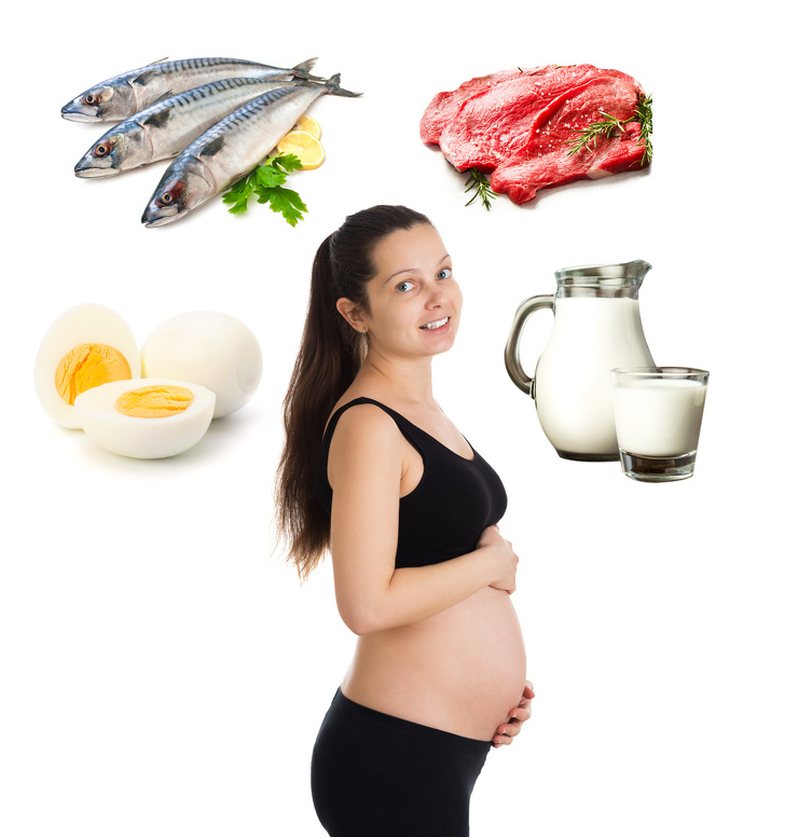
16-24 weeks
Nutrition at 6 months of pregnancy should contribute to the development of the child's vision and hearing. That is, you need vitamin A and beta-carotene. It is better to eat cabbage, yellow peppers, carrots at this time. Keep in mind that vitamin A is absorbed only with fats.
24-28 weeks
It is at this time that fractional nutrition becomes especially relevant. The uterus is actively growing, taking up more and more space in the abdominal cavity, and begins to put pressure on the stomach. Accordingly, the stomach becomes smaller, and it is difficult for it to contain a large amount of food. Even when eating small meals, a pregnant woman may be bothered by heartburn. It is better to give up carbonated drinks and coffee, they also provoke heartburn. In general, the nutrition of a pregnant woman in the third trimester should be as diverse as possible, as the needs of the baby grow.
29-34 weeks
At the 8th month, bones are actively growing and teeth are being laid, therefore, it is very important to eat as many calcium-containing foods as possible. For brain development, fatty acids are simply necessary, and they contribute to the absorption of calcium. Iron deficiency at this time can lead to the development of anemia, both in the mother and in the child. Fatty fish, nuts, red meat, dark green vegetables and seeds are the foods to eat during this period of pregnancy.
For brain development, fatty acids are simply necessary, and they contribute to the absorption of calcium. Iron deficiency at this time can lead to the development of anemia, both in the mother and in the child. Fatty fish, nuts, red meat, dark green vegetables and seeds are the foods to eat during this period of pregnancy.
35–40 weeks
Nutrition at the 9th, last month of pregnancy, should contribute to the overall strengthening of the mother's body. After all, she has a very difficult and time-consuming job ahead of her - childbirth. The main source of energy in the body is carbohydrates, and it is their consumption that should become the basis of the nutrition of a pregnant woman before childbirth. Cereals and vegetables are the foods that you should eat during this period.
That's all that can be said about trimester nutrition. An example of a menu for pregnant women by trimesters may also be useful. Based on these menus and explanations for them, you can create a menu for yourself.
Sample menu for pregnant women for the 1st trimester
1. Breakfast: muesli with yogurt and freshly squeezed pear juice.
2. First snack: salmon sandwich.
3. Lunch: mushroom soup, cabbage salad, herbal tea.
4. Second snack: whole grain bread with cheese.
5. Dinner: carrot salad and vegetable risotto. You can drink everything with kefir.
In the first trimester, it is very important that a woman receives a large amount of folate and vitamin B6 from food.
An example of a menu for pregnant women for the 2nd trimester
In the second trimester for pregnant women, the presence of omega-3 acid, calcium, vitamin D and iron in the diet is important.
1. Breakfast: oatmeal in milk with apple and cinnamon, chamomile tea.
2. First snack: almonds with prunes.
3. Lunch: lentil soup, seaweed salad, cranberry juice.
4. Second snack: sandwich with herring.
5. Dinner: omelet with mushrooms and yogurt.
An example of a menu for pregnant women for the 3rd trimester
Carbohydrates and vitamin K play a special role here.
1. Breakfast: pancakes with cream cheese and curdled milk.
2. First snack: whole grain cheese sandwich.
3. Lunch: fish hodgepodge, tuna and green salad, rosehip broth.
4. Second snack: cheesecake.
5. Dinner: fish with rice and fermented baked milk.
Special nutrition for pregnant women
But this is not all the nutritional features of pregnant women. In some cases, women develop pathologies during pregnancy that require special nutrition. So, with anemia in pregnant women, special nutrition is simply necessary. A woman who has experienced pregnancy anemia should consult a doctor not only about drug treatment, but also about an appropriate diet. With such a disease, it is very important to increase the intake of foods containing iron. Iron can be obtained from animal products (lean red meat, fish, poultry) and vegetable (nuts, dried porcini mushrooms, spinach, buckwheat, legumes, etc.) origin. In addition, it is important not only to know which foods to use, but also in what combinations, as this affects the absorption of iron in the human body. Vitamin C increases the absorption of iron in the body, that is, the combination of products containing iron and vitamin C is favorable. Foods containing calcium (dairy products) and tannin (tea, coffee) prevent the absorption of iron in the intestine. Therefore, their use should be separated.
Iron can be obtained from animal products (lean red meat, fish, poultry) and vegetable (nuts, dried porcini mushrooms, spinach, buckwheat, legumes, etc.) origin. In addition, it is important not only to know which foods to use, but also in what combinations, as this affects the absorption of iron in the human body. Vitamin C increases the absorption of iron in the body, that is, the combination of products containing iron and vitamin C is favorable. Foods containing calcium (dairy products) and tannin (tea, coffee) prevent the absorption of iron in the intestine. Therefore, their use should be separated.
With obesity that has developed during pregnancy, there may be a need for dietary nutrition for pregnant women. It is important to remember that without consulting a doctor, a pregnant woman should not choose a diet for weight loss. The risk of developing pathologies and abnormalities is too great, both in the body of the mother and in the body of the child.
Especially harmful are mono-diets and diets that require prolonged fasting.